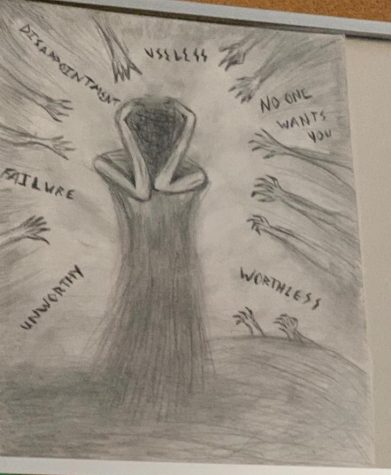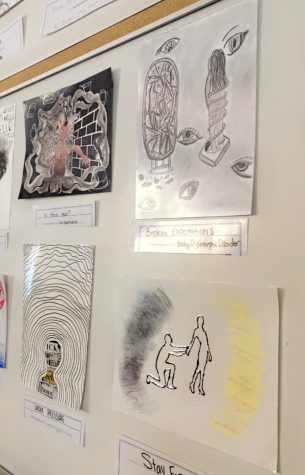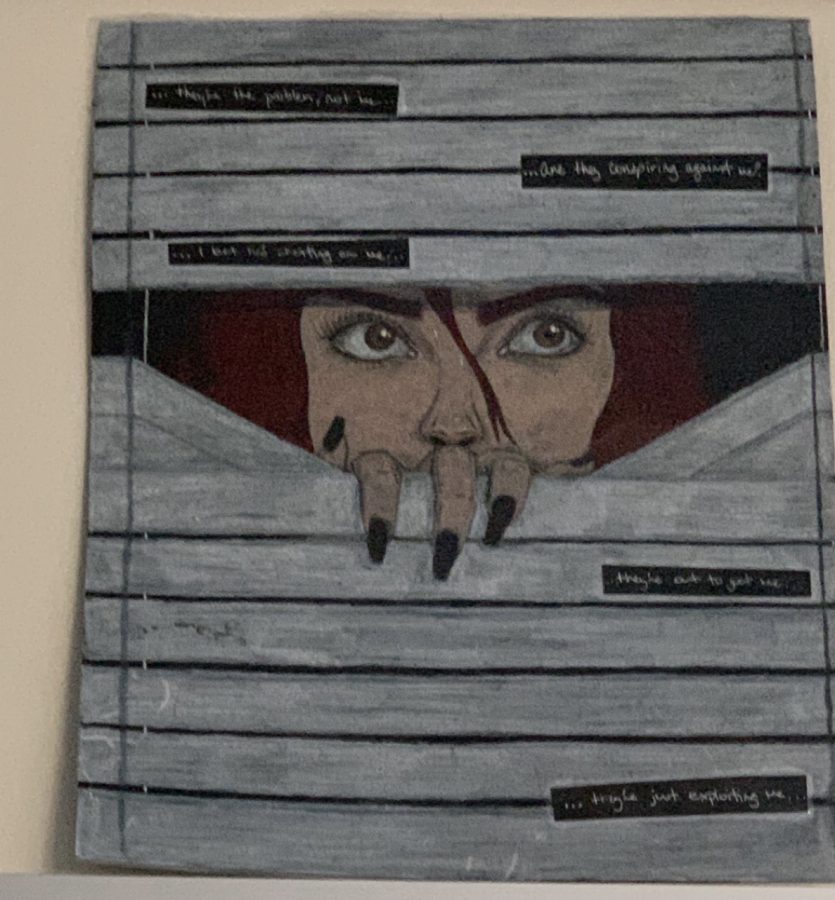
(Photos by Abagail Bissett)

Mental health is defined as the overall health of one’s emotional, psychological and social well-being. It is just as important as physical health. There is a lack of information regarding mental illness as well as who it affects. While mental illness can affect anyone, some groups are more likely to develop a mental illness than others. Nearly 50% of LGBTQ+ youth have considered suicide and are more likely to face mental health issues in comparison with heterosexual youth. In 2019, the number of black students who attempted to commit suicide rose by 50%(CDC). This is due to discrimination, lack of information, and misinformation. Due to the media and the spread of misinformation, some students say that it is harder to come forward about mental illness.
“When I tried to tell my mom that I was depressed, she didn’t believe me. She thought I was faking it,” said Sherry Acevedo, junior.
With the pandemic and the influx of social media, the overall mental well-being of teenagers has taken a serious turn. The portrayal of mental illness in the media, such as movies, tv shows, and social media, has both positive and negative impacts on teenagers with mental illness.
Many TV shows and movies fail at getting the point of mental illness across. Some shows, such as 13 Reasons Why, glorify mental illness and depression and make it seem like a desirable thing to have. Shows like 13 Reasons Why fail at identifying a key part in addressing mental illness, receiving and asking for help.
“I attempted suicide when I was 12 and it took until I was 16 for me to get help,” Acevedo said. “When people fake the illness that I have, I really hate it, it’s horrible because no one believes me.”
During the pandemic, researchers have found an influx of tics developing from TikTok and people claiming that they have Tourettes Syndrome due to a surplus of misinformation. This makes life harder for people who actually suffer from the disability. Even though Tourettes is a neurological disorder, people have been doing the same thing with mental disorders such as ADHD, anorexia, autism, OCD, anxiety, and an array of other mental illnesses because they think it is “cool.” The portrayal of mental illness for the benefit of looking cool or getting likes on an instagram post is incredibly harmful for people with diagnosed mental illnesses to be seen. It can also spread misinformation about the mental illnesses itself.
On the other hand, the media can be a good source for people to go to. In this age of Social Media and sharing every part of our lives, mental illness has had a 40% increase since 2009. People are seeing others living with a mental illness that maybe they, themselves, are struggling with and can feel like they are not alone.
Social media has also improved mental and social well-being in people by allowing for easier communication with friends and family, wherever they are in the world. It can allow for feelings of connection and closeness. Social media can also offer resources available to anyone, regardless of background. Many people on social media share their lives, their struggles and what has helped them through those struggles, someone struggling may see that and use it as a resource.
“The media has been good for that stuff,” said Shernita Telfair, school counselor. “Kids see people with mental illness and it can make them say ‘that person is like me’ and they will seek help.”
Social Media has become such a big part of today’s society and it affects a lot of aspects of people’s lives. There are a lot of positives surrounding social media, conversely, there are a lot of negatives as well. Media can bring people closer together and can spread awareness, but it can also be a harmful thing that spreads misinformation. Knowing both sides of the argument can help people in crisis find help and feel comfortable. The showing of mental illness in the media is incredibly helpful for the spread of information and awareness, but only if it is showing the true side and not stereotypes. Knowing the difference in spreading awareness and glorifying can mean the world to someone struggling, so it is important for the majority of people to know the difference, and how glorifying can be harmful for those struggling.
If you are having suicidal thoughts please call the National Suicide Helpline at 1-800-273-8255.







